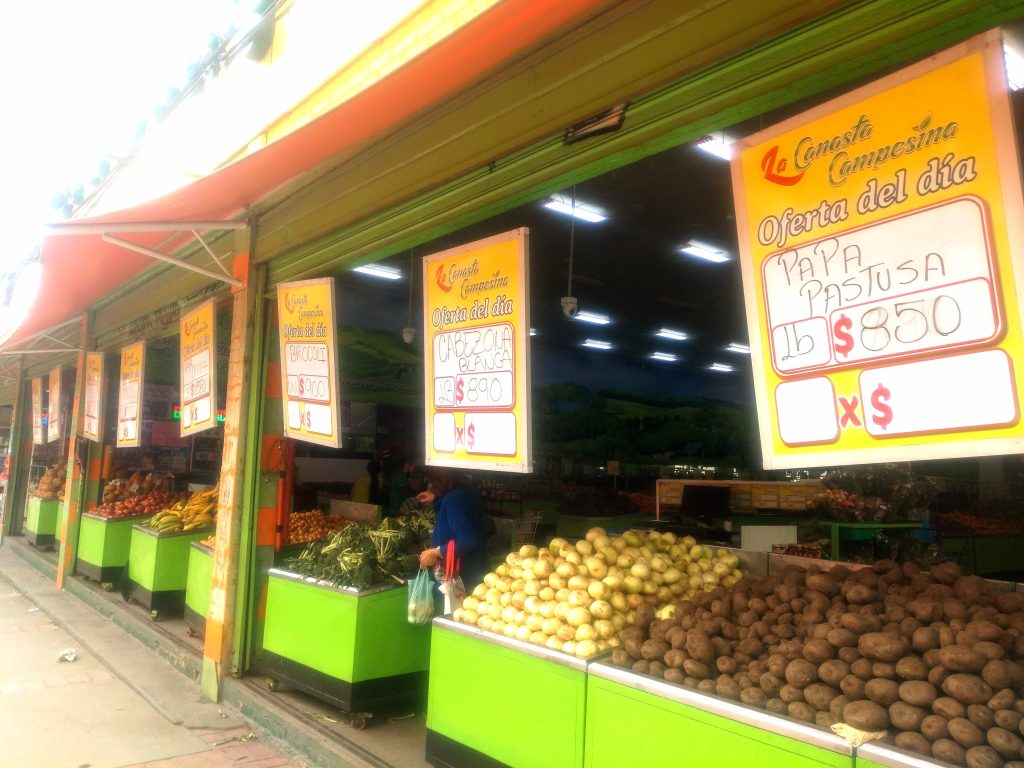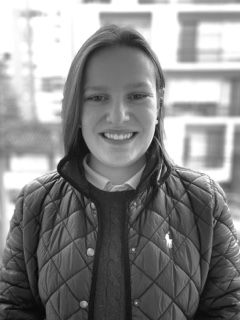
[Listen to an audio version of this blog entry here.]
A few weeks back, on one of my pueblo escapes from Bogotá — to La Paz, Santander, precisely speaking — I had an interesting conversation with a man about Colombia’s less well-off.
He was of the opinion that one couldn’t objectively class the majority of the country’s rural dwellers as poor. Of course, officially speaking, most measures of poverty here support this view.
Andean autarky
However, there is a perception, not only from outside observers but also from some locals, that the country folk — the campesinos — have it quite tough.
For sure, as my pueblo acquaintance remarked, there is abject poverty in many parts of Colombia, particularly in the peripheries, but in the market towns and their hinterlands of the Andean and significant parts of the Orinoco regions, people seem to live relatively comfortably.
Many have their small plot of land, grow various crops, keep fowl and other livestock for their own consumption and want for little when it comes to the bare necessities.
OK, the internal conflict here brought much strife and no end of worries for many but that situation has been improving of late — for the most part, in any case.
‘Another positive for the ordinary pueblo life is that these wild price fluctuations when it comes to socialising and the like aren’t generally a factor.’
Nonetheless, recent arrivals here from high-income nations are often shocked to see what many locals survive on. Obviously, when average wages are viewed in dollar or euro terms, they are paltry. But it’s the peso we deal in here.
Keeping it tight
Right now, as a single, childless man, I get by, on average, on about 1,200,000 pesos per month. This is slightly higher than Colombia’s minimum wage, but I am in the relatively expensive capital city.
My monthly rent, at 550,000 is, unsurprisingly enough, the single biggest item of expenditure. Such an amount in most small towns would get me my own place — I house share in Bogotá.
Of course, this means I’m always quite budget-conscious; buying fruit and veg on offer on any given day rather than going for what I might ideally want, keeping clothes purchases to pretty much the essentials, things like that.
This rather parsimonious path — some may view it as being tight-fisted — is perhaps an overcorrection to being a tad reckless with purchases in my earlier adulthood. Seeing my father get into financial difficulty after making harebrained investments with money he didn’t really have during Ireland’s Celtic Tiger years also plays its part.
The fact I don’t currently have a steady income is a major factor, too. It tends to check any desire to splurge. One must cut one’s cloth accordingly.
‘The grass isn’t greener over there’
Now, this isn’t to say I don’t have a lively social life. By any measure, I do. Yes, it is largely limited to the barrio beat, a drawback for some people. I, however, am loath to spend what are akin to Irish/UK prices in some of Bogotá’s swankier parts. As a further positive for the ordinary pueblo life, such wild price fluctuations when it comes to socialising and the like aren’t generally a factor.
I also travel fairly frequently, in the Andean region in any case.
It must be noted, unfair as it may be, that as a native English speaker I can command higher prices per hour for any English-related work compared to most locals. It’s how the free market rolls, isn’t it?
So, with my minimalist lifestyle, particularly since the coronavirus pandemic, I’ve been able to live off the odd relatively well-paid project, remaining largely in control of my own time. As mentioned above, though, not having a regular, reliable income does have its negative aspects.
Another problem for somebody from a high-income nation but now living in a middle-income country and earning an average wage in that territory is that any visit home becomes quite expensive.
This isn’t a «complaint» on my part; it was, after all, my free choice to come and live here. (And, if I’d heeded the not-so-gentle hints from La Cancillería Colombia, I probably would have left at least four years ago!)
The majority of Colombians, to state the obvious, are born with this problem. If they want to leave their homeland to earn the «bigger bucks» in the likes of Canada, Europe or the USA, it can be quite the financial undertaking. This is particularly so if they’ve no pre-existing family support in such places.
That is if they want to leave. As my pueblo parcero pointed out, some — even if they may outwardly play the poverty card — are quite content with their lot. That grass may not be as green as it seems over yonder.
_______________________________________________________________
Listen to Wrong Way’s Colombia Cast podcast here.
Facebook: Wrong Way Corrigan — The Blog & IQuiz «The Bogotá Pub Quiz».






Beware of appearances. I live in a «pueblo». The other day someone pointed at a poor campesino. He wore a dirty ruana and was riding an old bicycle. My friend asked: Guess what his net worth is…This campesino owned vast lands, worth over 3 million US dollars. He just liked to live like he always had
Califica:
-
Me
gusta
0
- No me
gusta
0
ReportarIndeed. As the old saying goes, ‘Where there’s muck, there’s money.’
Califica:
-
Me
gusta
0
- No me
gusta
0
ReportarThanks, you’re not talking trash about us. Just telling us how you’re trying to live with same resources local ppl is doing. Amazing is when you say some guys are so happy living a basic life with some chickens, a dog and some crops usually for selfconsumption. I saw same behavoir in Europe, in a place I was living, locals don’t try to get more than they need, they were living a good life with basic style.
Califica:
-
Me
gusta
0
- No me
gusta
0
ReportarThis is it, Carlos. Obviously, there are issues like access to quality education, good health care, etc. — issues that you have in high-income nations, too — but the idea that just because one doesn’t live with all the luxuries of modern life means one is poor and/or has a sub-standard life is just not correct.
Califica:
-
Me
gusta
0
- No me
gusta
0
Reportar